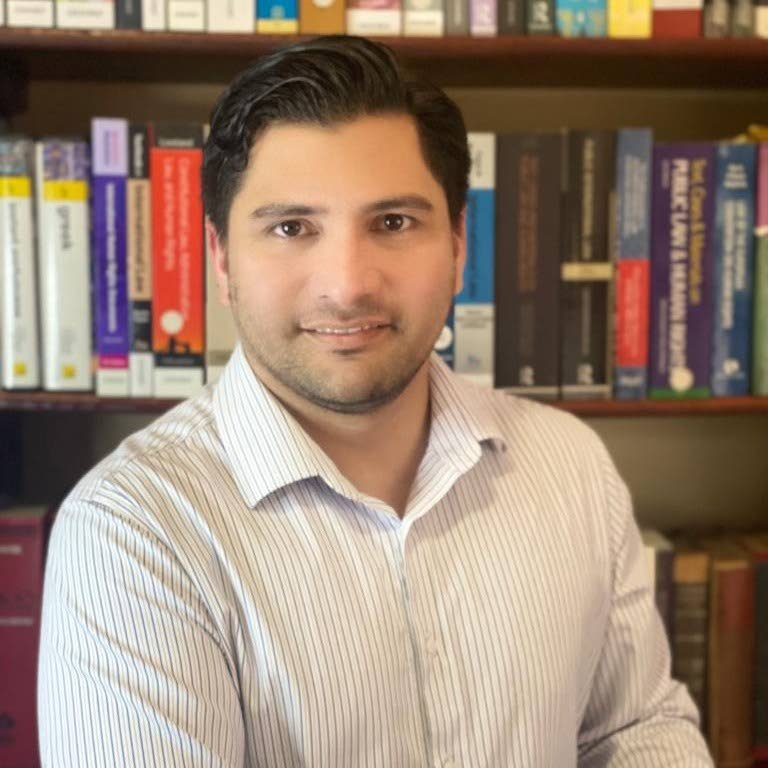Human rights body expands role to oppose colonial laws

FOUNDED in 2006, the Caribbean Centre for Human Rights (CCHR) initially focused on the death penalty and criminal justice reform.
But over the years, the focus expanded to other aspects of human rights and, with that expansion, a new space was necessary.
As a result, the CCHR opened its headquarters in January, an office at 1 Robinson Ville, Belmont.
CCHR director Dr Timothy Affonso said, “Our aim to bring an awareness to human rights, but beyond education and public awareness, it’s also to actively participate in making things better.”
Therefore, Mary Jo Marsden, executive director of CCHR, explained the organisation became the representative for an UNHCR project, providing legal assistance to asylum seekers and refugees in 2024, and so opened a small office in Belmont.
Now it is expanding its services to provide strategic litigation to assist people exposed to human rights infringements, and to address the “saving law” clauses in many Caribbean constitutions.
Strategic litigation is the practice of pursuing legal cases to achieve broader societal change by influencing policy, setting legal precedents or raising public awareness about a particular issue.
Marsden gave the example of refugees or asylum seekers who came to TT illegally and faced deportation.
After years of being in the country and creating a life here with a spouse and children, should that person be considered for deportation? she asked.
“We are saying, although the law exists, there might be considerations we might ask be given. But we don’t have a law saying after somebody has been here three years they could then, in fact, apply for legal status.”
Affonso said the CCHR did not want to only host conferences where the same people showed up all the time. That was why it identified cases that were deemed important and the organisation paid for the lawyers to represent the clients.
It has also been partnering with UWI Legal Aid Clinic for representation.
CCHR was also doing work on constitutional reform.
Affonso explained the organisation got a grant from the Open Society Foundation to engage in research into all the constitutions across the Caribbean, looking into the saving law clause – which essentially protects all pre-independence or colonial laws from constitutional challenge.
“There is actually a clause in the Constitution that saves pre-independence laws. So laws applicable when we were a colony are still protected and preserved.”
He said those laws were dangerous as they often targeted people who were not part of mainstream society, like the LGBTQIA community.
Affonso said the CCHR was in the process of publishing a book for the benefit of regional governments and students, to point out the harm of the saving law clause and explain why it should be removed.
Marsden added, “Some of those are very minor and some are very significant. One of them is the death penalty, which is probably the most significant. And in many Caribbean countries, we’re now fighting to have the death penalty abolished. Because, as you can see, from a human rights perspective, the death penalty is not acceptable against modern justice standards.”
Affonso stressed that, to the extent of its funding, the CCHR was focused on equality and equity for all vulnerable groups across the Caribbean, including women, children, migrants, the poor and indigenous communities.
And it engaged all human rights issues including extended period of delay before a trial, fair trials and climate change as the most vulnerable were the ones most affected.
“There is now a phenomenon of climate migrants, people who leave their homes because of climate change events like increasing temperatures or erosion of coastal territories or rising sea levels. It’s happening in the region!”
He said some of the issues could not be resolved in court but had to be addressed through negotiation and treaties.
Through its work, CCHR aims to safeguard universal human rights, advance systemic change, dismantle oppressive structures and empower Caribbean communities to advocate for their rights and freedoms.

Comments
"Human rights body expands role to oppose colonial laws"